For some time there has been a garden industry on the left that believed two things held the Democrats from permanent electoral triumph. The first, of course, is that voters are just too stupid to understand what is good for them. This school of thought is championed by a guy named Thomas Frank who wrote a book called What’s the Matter with Kansas? in which he bemoans how stupid people in flyover country… which he had the good fortune to flee… vote against their economic self-interests. A sample:
Not long ago, Kansas would have responded to the current situation by making the bastards pay. This would have been a political certainty, as predictable as what happens when you touch a match to a puddle of gasoline. When business screwed the farmers and the workers – when it implemented monopoly strategies invasive beyond the Populists’ furthest imaginings – when it ripped off shareholders and casually tossed thousands out of work – you could be damned sure about what would follow.
Not these days. Out here the gravity of discontent pulls in only one direction: to the right, to the right, further to the right. Strip today’s Kansans of their job security, and they head out to become registered Republicans. Push them off their land, and next thing you know they’re protesting in front of abortion clinics. Squander their life savings on manicures for the CEO, and there’s a good chance they’ll join the John Birch Society. But ask them about the remedies their ancestors proposed (unions, antitrust, public ownership), and you might as well be referring to the days when knighthood was in flower.
As it turns out, very little was wrong with Kansans economic decisionmaking:
Throughout the 1990s and the first part of this new decade, Kansas had a lower unemployment rate than the U.S. as a whole. In fact, when the country’s unemployment rate dipped below 5% from 1997 to 2001, Kansas’s fell under 4%–alevel so low that economists basically consider it full employment. Overall, the state’s economy added 256,000 new jobs during the 1990s, a 24% growth rate, compared with a 20% national gain in the same period. Even when the economic slowdown set in and the recession finally hit in 2002 and 2003, Kansas lost jobs at a slower rate than the national economy did.
It’s the same story in the state’s agricultural sector, which Mr. Frank claims the freemarket has driven “to a near state of collapse.” Yes, Kansas farm jobs shrank by about 9% in the 1990s, a result of farms becoming larger and more efficient (and producing more), but the state’s total agricultural economy grew by 10%, some 30,000 jobs, as areas like food processing and agricultural wholesaling expanded.
This way of thinking is alive and well even today as Democrats blame the public for being torqued when they lose their insurance or have to pay more for less coverage:
“One of the things that we have learned with the passage of the law [Obamacare], and certainly with open enrollment in 2014–and I think this will be true again in 2015–is that a lot of Americans have no idea what insurance is about, and have no idea, even if they have coverage, what it means, you know, what a deductible is, what a copay is, how to choose a network. Those are complicated terms,” Sebelius told USA Today’s Susan Page.
Sebelius added that Americans’ inability to understand health insurance was a “stunning revelation.”
“I think the financial literacy of a lot of people, particularly people who did not have insurance coverage, or whose employers choose their coverage and kind of present it to them, is very low,” said Sebelius. “That has been a stunning revelation.”
The second school of thought is that Democrats simply don’t explain what government can do well enough and this opens the door to Republicans to attack government. A great example of this thinking is presented by Michael Tomasky in The Daily Beast, Democrats Are Petrified of Defending Government—but They Need to Start:
This is what infuriates me, what the Democrats and the progressive political experts have done such a pathetic job at explaining to people. There are certain things that everyone knows the government takes the lead on—highways probably being the most obvious. But who cleans lakes and streams and rivers and makes them fishable and swimmable again? Who reduces smog, acid rain, lead poisoning? Who cleans up toxic waste sites? Who builds (or provides a lot of the money to build) senior citizen centers and community swimming pools and all manner of recreational facilities? Who sends millions of research and other dollars to universities and colleges across the country, from Harvard to small community colleges, pumping up local economies all over America? Who helps build convention centers and adjacent hotels so cities can attract convention business? And on and on and on and on and on. Most people go through their lives taking frequent advantage of these investments and amenities but never giving a second’s thought to the idea that the government made them possible. Most of them just think that lake cleaned itself somehow over the years.
Let’s pause for a moment and take a quick trip to Louisiana where [mc_name name=’Sen. Mary Landrieu (D-LA)’ chamber=’senate’ mcid=’L000550′ ]’s political career is on life support and the plug will probably be pulled tomorrow evening. From Dave Weigel writing in Bloomberg Politics The Last Days of Democratic Politics In Louisiana Are Here
In this state, people are often talking about social issues. Often, but not always. In Plaquemine, a town down the road from Baton Rouge, I take a party-switching state senator’s lunch recommendation and head into a diner called Fat Daddy’s. A couple named Dale and Bitsie Stampley tell me, woefully, how they had to leave the Democratic Party that their families had always voted for. They started seeing people who thought “the government could take care of them,” says Dale Stampley. “You see people with five, six phones, paid for by the government.”
Voters like the Stampley came to see the Democrats as the party that redistributed their money to the people who had not earned it. The Affordable Care Act became the most painful example—Cassidy never stopped talking about it, and Landrieu could not shake it. Voters were not listening to Landrieu or any Democrat when they talked about the assets they could bring to the state. But they’d been building to that for years.
This is the rub for Tomasky and his fellow-travelers. Voters in general, and conservatives in particular, aren’t necessarily opposed to government per se. The US Constitution recognizes that the federal government has a role in roads, commerce, patents and trademarks, defense, issuing currency, etc. What the citizenry also recognizes is that government intervention results in two things: higher taxes and less freedom as government rules and regulations inevitably follow government money. Even Paul Krugman has probably figured that out by now.
Tomasky goes on to bleat:
But it extends down to the millions of people who accept and applaud the right-wing rhetoric even as they suck on the government tit every day of their lives in one way or another, either without knowing it or (worse) knowing it but denying that they do because they’ve stuffed their own heads full of some nonsense narrative about how tough and independent they are.
This is the fight. Government’s role in people’s lives. It’s a fight Democrats have been, for pretty much my whole adult lifetime, utterly petrified at the thought of having to take on. But they will never be the consensus-majority party again, as they were when I was born and when Chuck Schumer was a youngster, until they do take on this fight again, and win it.
Until Americans’ minds are changed about government, the domestic politics game will be played on fundamentally Republican turf. It’ll take time, a generation maybe, but it can happen. Schumer deserves a lot of credit for being the first who was willing to say it.
To a certain extent he’s right. Going back to the Dave Weigel article, he relates an encounter he has with former Louisiana Senator John Breaux:
“As you travel around, you meet these people who are very dependent on Medicaid, on Social Security,” says former Senator John Breaux, who retired in 2004 and saw his seat won by Republican [mc_name name=’Sen. David Vitter (R-LA)’ chamber=’senate’ mcid=’V000127′ ]. “These people could not make it without that. Those are basically Democratic programs, and those same people say, ‘I don’t want the government to interfere.’ I remember when I chaired the Medicaid committee, I had a woman come up to me and say, ‘Whatever y’all do make sure the federal government doesn’t take over my Medicare.’”
This is because that the Democrats figured out early on that given the monumental deficits that will be racked up by Social Security and Medicare and the damage that it will do to the economy in the next decades that the only way those programs would survive was if people decided they had actually paid for the benefits themselves. How often have you heard Democrats refer to “your Social Security”? And so, now most Americans are convinced that the Social Security and Medicare benefits they receive are not only theirs but that they have paid for them over years of paying the payroll tax. This is because they know if people knew they were paying for the current benefits of strangers there would be an uprising and non-compliance among the self-employed would reach stratospheric levels.
People, contrary to what most Democrats and progressives believe, aren’t stupid. In fact, people are fairly intelligent about where their money goes and what benefit they get from it. The reason bond issues go down to defeat so often is that voters look at the activity and get a chance to weigh it against the benefits and, as wonderful as the government is, voters usually decide that they’d rather spend their money on a trip, or their kids’s college education, or hookers and blow than on a senior center or some bogus school board project.
There is a lesson here for Republicans. Being the party of making the Big Government trains run on time is a loser. We need to become the party associated with dismantling the regulatory structure of Big Government that stifles freedom, creativity, and economic growth.




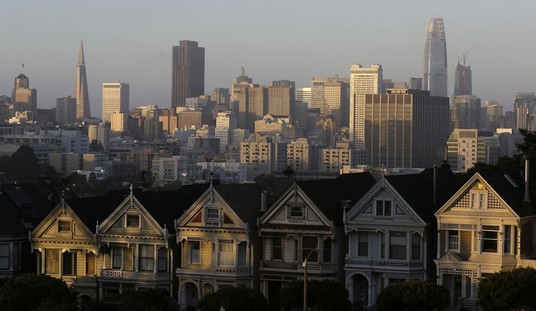

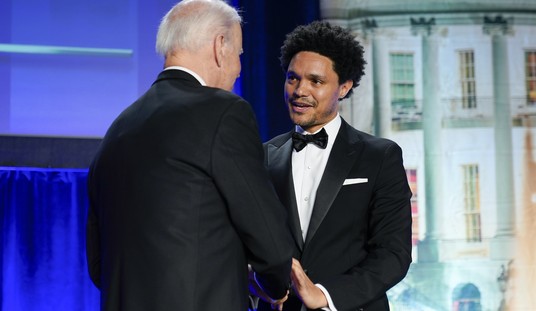
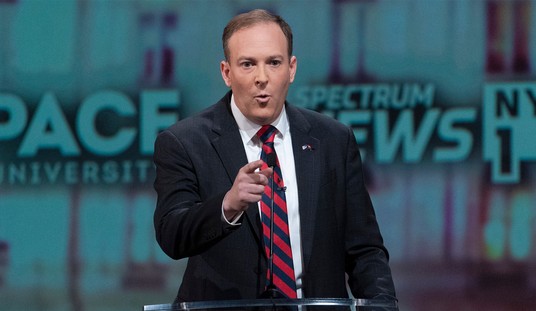
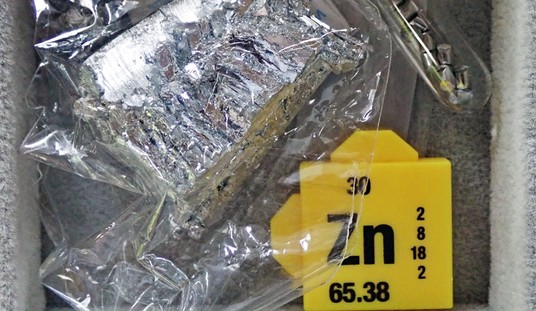

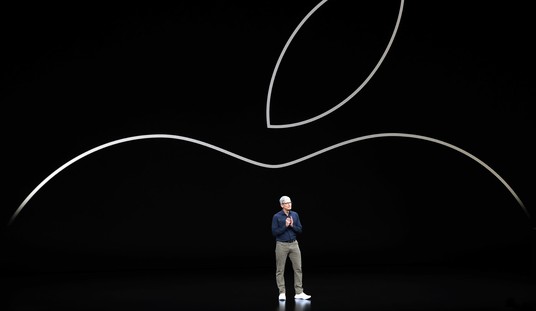


Join the conversation as a VIP Member